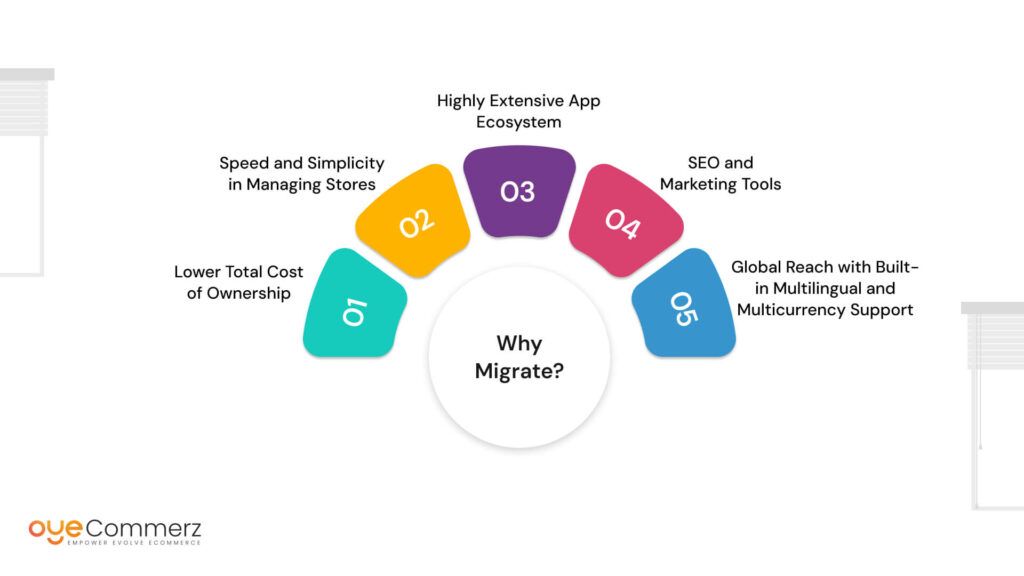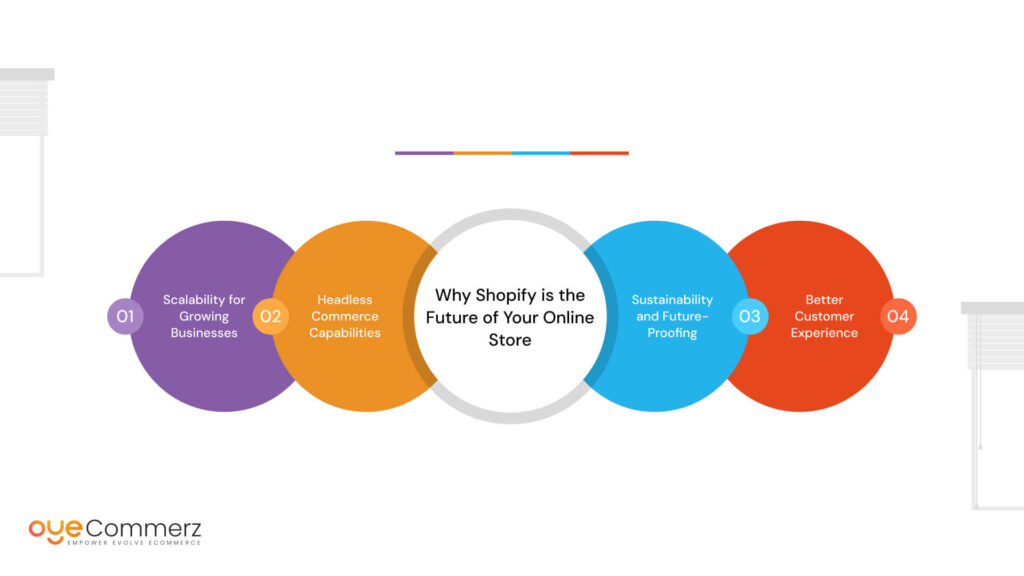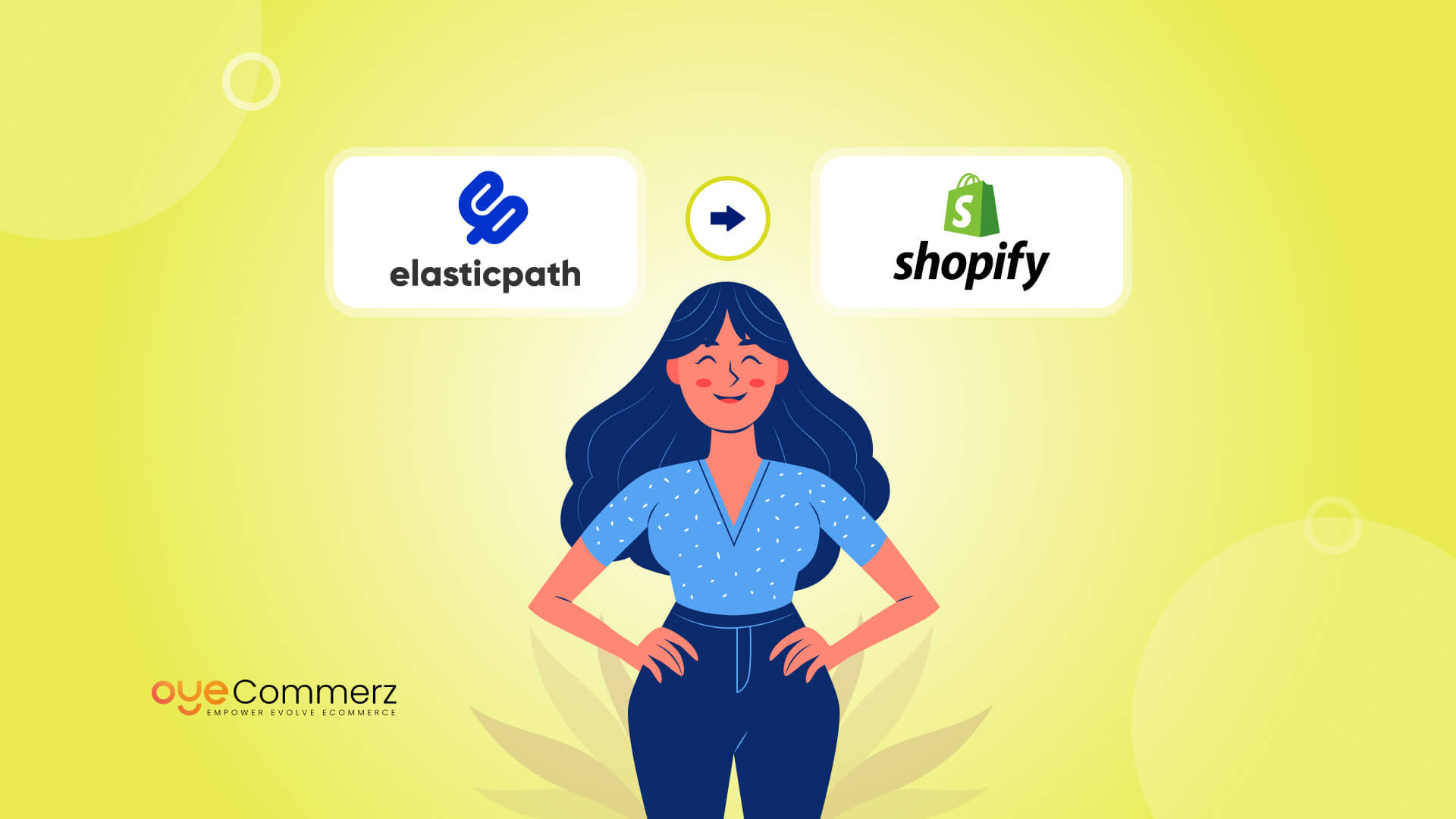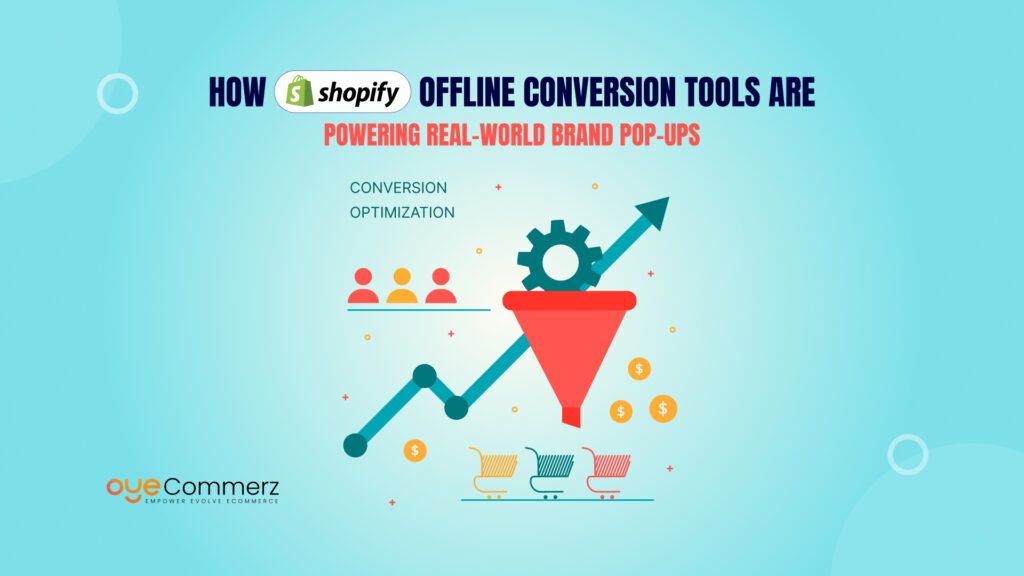If you’re currently using Elastic Path for your eCommerce store, you may be weighing the idea of switching to Shopify. And it makes sense many business owners are making the leap, drawn by the promise of simplicity, scalability, and enhanced features. But what makes Shopify a top contender, and why should you consider the move?
In this post, we’ll explore the key benefits of migrating from Elastic Path to Shopify, showing you how this switch can help streamline your operations, boost your customer experience, and set your business up for long-term growth. Migrating to Shopify can boost your site’s speed by up to 40%, ensuring a smoother, faster shopping experience for your customers!
Table of Contents
ToggleElastic Path vs. Shopify
Elastic Path and Shopify serve two different market needs and different technical environments, and therefore the migration plan needs to clearly outline the differences between both.
- Elastic Path is highly flexible and supports headless commerce capabilities. Well, practically every feature of the digital experience can be customized by this business. For organizations that need fine-grained control over their commerce architecture, it is a very powerful tool, but generally, what happens with this level of customization is that complexity, higher maintenance needs, and greater reliance on development resources go up.
- Shopify, on the other hand, is much leaner, more out-of-the-box, especially with its Shopify Plus offering for larger businesses. Shopify is not a headless commerce platform by default, but it has great API capabilities so businesses can still get very close to a headless setup if they want to. The strength of Shopify is that it finds a nice balance between flexibility and simplicity. Designed to be user-friendly for those who have less experience in the tech world, the platform can offer the most powerful features as your business scales. Hosting and security are taken care of by Shopify, so your team can focus on growth, not maintenance.
- There is a key trade-off in comparing Elastic Path and Shopify: whether it’s ease of management or level of customization. More important than that, if you are interested in a hassle-free way to manage scale, Shopify gives you a platform that reduces technical burden on your team, automates updates, and offers constant support for businesses looking to scale efficiently.
Why Migrate from Elastic Path to Shopify?

Lower Total Cost of Ownership
Probably the most important reason a business considers migration from Elastic Path to Shopify is due to the simplification of the total cost of ownership. Regarding its elastic architecture, while it is quite excellent in providing features for customized implementation, Elastic Path is often burdened by high continuing investment in development, infrastructure, and maintenance. Shopify, however, is a hosted platform that is relatively easy to estimate in terms of predictable costs. Shopify’s SaaS model reduces the need for big IT teams, decreases infrastructure costs, and reduces the complexity of security as well as compliance. All these savings free up resources that can be better utilized to allocate to marketing or customer acquisition or scaling the operations.
Speed and Simplicity in Managing Stores
Of course, running a custom platform like Elastic Path is so time-consuming, and after all these changes or updates required. Shopify has brought store management to its simplest form in a user-friendly dashboard where nontechnical team members can update the products, review the inventory, and apply the changes without requiring development resources. Shopify has a designed platform that keeps things as efficient as possible, meaning that you can update your store within short periods, reducing the time spent on downtime and expediting how soon you’ll be able to market new features or products.
Highly Extensive App Ecosystem
Shopify offers an extensive third-party app and plugin ecosystem. You can easily extend the functionality of your store through seamless efforts. Be it adding advanced analytics, improving SEO, or optimizing shipping and logistics, Shopify’s App Store has ample solutions for your eCommerce store. This ease of extensibility reduces the need for so-called custom development that often seems to be necessary on platforms like Elastic Path. New features can be rolled out faster and with less friction; thus, faster-to-market can keep you ahead in an accelerating market.
SEO and Marketing Tools
Shopify is offered as SEO-friendly right out of the box. Another auto-generating website structure from the platform, is clean URLs, with mobile responsiveness, which helps your store rank better in search engines. Of course, as flexible as Elastic Path is, you would have to put in more manual work to get up to this level of SEO optimization. Integrate into a wide set of marketing tools, that range from email marketing services and social media platforms to advertising networks.
Global Reach with Built-in Multilingual and Multicurrency Support
Shopify is also built for global eCommerce and makes it easy to support selling in multiple currencies and languages. This is a “must-have” for companies targeting international markets. Elastic Path supports global capabilities but needs a bit more development work to get smooth multilingual and multicurrency functionality. Shopify native capabilities reduce friction associated with international expansion, giving businesses an early head start into capturing new markets.
Post-Migration Support and Shopify Community
Shopify has excellent post-migration support; this is highly important for companies seeking to change their platforms. Migrating from Elastic Path to Shopify is a huge project in terms of data and business process transfer where all configurations are impacted. Shopify provides extensive documentation and, above all, 24/7 customer support together with entrance to a vibrant community of developers and experts that will help you to cross this way and much more.
Expert Guidance and Resources
Shopify has a large pool of Shopify Experts and certified agencies like Oyecommerz for migration. These experts are highly experienced in handling complex migrations with the proper transfer of products, customer information, and orders. In addition to the comprehensive guides and webinars, Shopify also provides case studies that can potentially be actionable for the optimization of a store post-migration.
Large and Active Developer and User Community
The Shopify community is very active in the eCommerce space. Need some troubleshooting, customizing your store design, or optimizing marketing? Well, count on using one of its numerous Shopify community forums, and GitHub repositories, or hold local meetups. There are all the possibilities of collaboration opportunities are never going to be alone in running your store on Shopify since you can find expert advice just a few clicks away.
Continuous Improvements and Updates
Shopify is constantly developing and refining the platform. Updates are done automatically so that your store is always running on the latest, most secure version of the platform. For example, in Elastic Path, there could be updates, which would serve as an opportunity to intervene manually, require development work, and require a day or two of downtime. With Shopify, you can grow your business knowing that the infrastructure of the platform is constantly updated.
Why Shopify is the Future of Your Online Store

Scalability for Growing Businesses
Shopify scales with your business. Whether your boutique is small or your enterprise complex, Shopify builds on the infrastructure and offers features for all kinds of growth. Shopify Plus, for example, is for high-growth businesses, with advanced automation tools, unlimited bandwidth, and dedicated support. Elastic Path is also for enterprise-level businesses but often requires more custom development to achieve this kind of scalability.
Headless Commerce Capabilities
Although it’s a hosted platform, the solutions still are quite robust concerning API capabilities and headless commerce setups. Therefore, businesses may leverage the Shopify backend to handle inventory management, order processing, and checkout while offering a custom front-end experience. The demand for headless commerce is constantly on the rise, so Shopify keeps building up its portfolio with this capability to ensure a viable opportunity exists for businesses wanting the flexibility of a decoupled architecture.
Sustainability and Future-Proofing
Shopify remains sustainable and innovative by continuously investing in new technologies and features that put it at the forefront of the eCommerce landscape. From the introduction of Shopify Hydrogen for custom storefronts to continued improvements to its API integrations, the platform grows according to the needs of modern businesses. Elastic Path is innovative, but it can hardly come close to the same regular updates and overall breadth of features Shopify rolls out of the box.
Better Customer Experience
Customer experience is one of the most important areas in eCommerce, and Shopify does exceptional work by giving companies everything needed to have an engaging, fluid shopping experience. Fast load times, mobile optimization, and storefronts that are simple to access all ensure your customers can quickly browse shop, and check out without hassle. Elastic Path takes a lot more effort to achieve this same level of fluidity for the customer journey.
Unlock the Full Potential of Your eCommerce Business with OyeCommerz
Ready to elevate your online store by migrating from Elastic Path to Shopify? OyeCommerz is here to help. Our team of Shopify experts specializes in seamless migrations, ensuring your business can leverage the cost efficiency, scalability, and extensive app ecosystem that Shopify offers. With our comprehensive support, we’ll handle everything from data migration to post-launch optimization, so you can focus on growth.
Contact us now for a free consultation and start your migration journey with confidence!
Contact to Migrate your Site to Shopify Now
Conclusion
This transition to Shopify after Elastic Path will lead to many more possibilities for your business. Among the complete amalgamation of lower costs, ease of use, scalability, and global capabilities, Shopify is the perfect platform for those businesses that are growing without any kind of technical burden of their custom solution. Even if Elastic Path provides strong customization, a streamlined, user-friendly experience might be easier for you with Shopify which could very effortlessly provide very powerful outcomes through its incredibly large app ecosystem and API capabilities.
By choosing Shopify, you are investing in a platform that will be in constant change to ensure your business never lags behind its eCommerce dealings in this fast-moving world. With post-migration support and a dedicated community of experts at your disposal, transitioning into Shopify makes it possible to mention the smart move for the future of your online store.
Frequently Asked Questions
Migrating from Elastic Path to Shopify offers benefits like lower costs, easier store management, built-in marketing tools, and access to a vast Shopify App Store for enhanced functionality.
Shopify migration provides a scalable infrastructure with automatic updates, seamless third-party integrations, and the ability to handle high-traffic sales events without complex backend management.
Unlike Elastic Path, which requires custom development and high maintenance costs, Shopify’s pricing plans are transparent, with lower upfront costs and reduced dependency on developers.
With a structured Shopify migration process, you can securely transfer product data, customer records, and order history while maintaining SEO rankings and URL redirects.
Shopify’s user-friendly design offers faster load times, mobile responsiveness, and a seamless checkout process, improving conversions and reducing cart abandonment.
Yes! Shopify’s App Store provides thousands of integrations for marketing, payments, and automation, giving you more flexibility than Elastic Path’s custom solutions.



